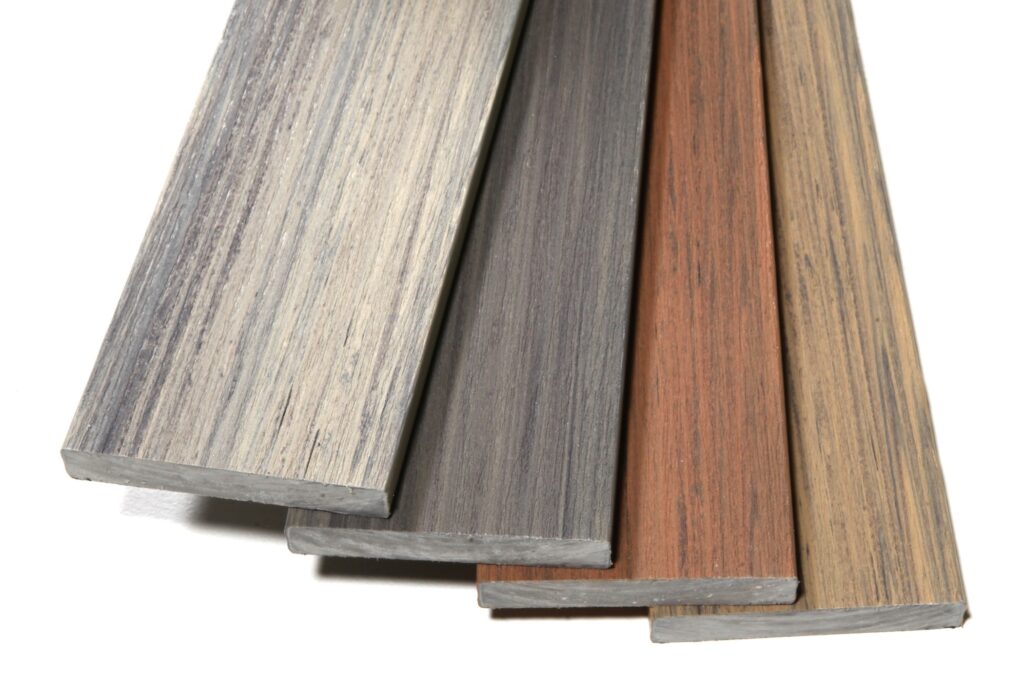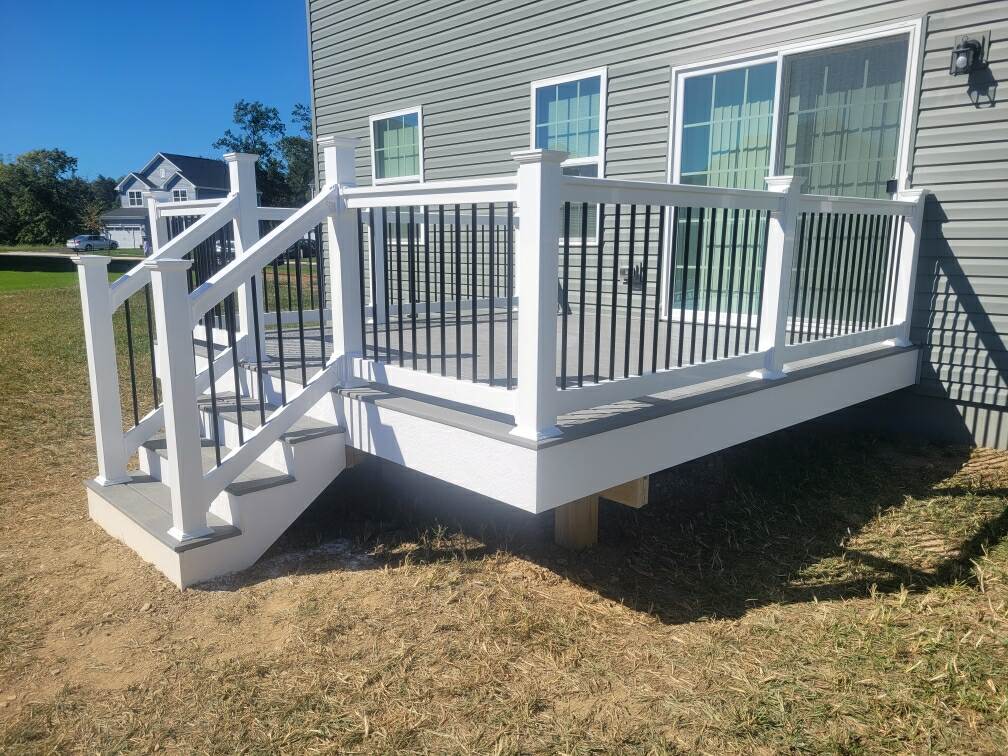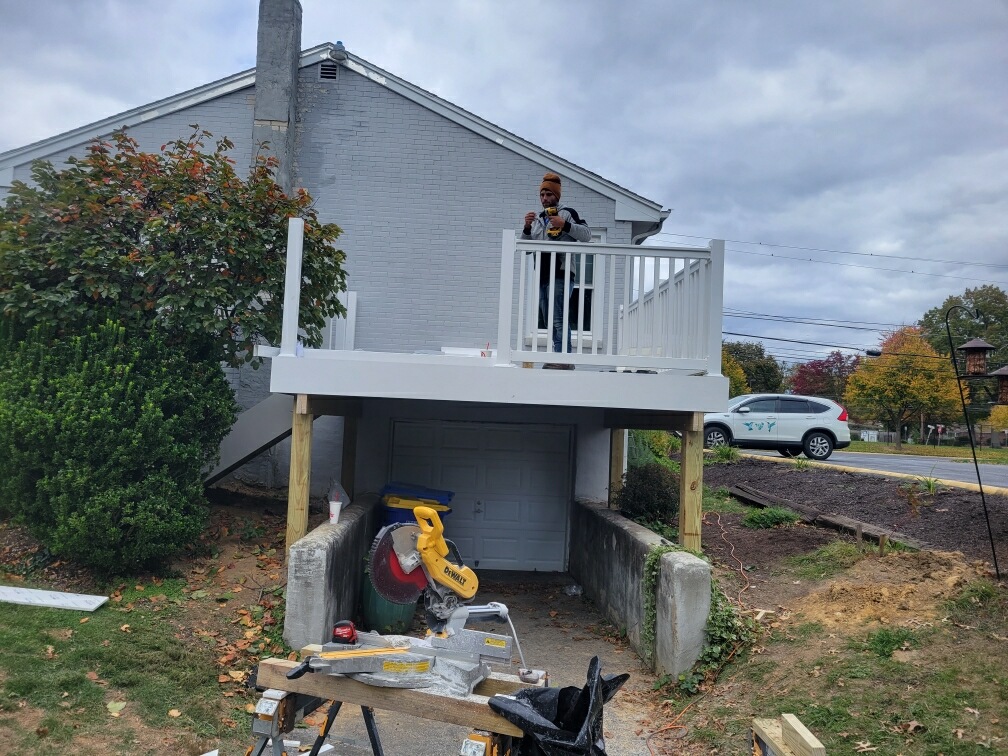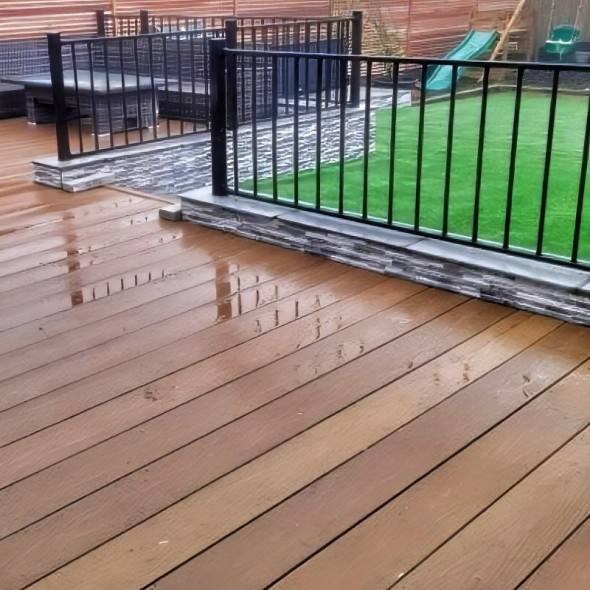Composite Decking vs PVC Decking: A Comprehensive Comparison
When planning to build or renovate your outdoor deck, choosing the right material is crucial. Composite and PVC decking are two popular alternatives to traditional wood decking, each offering unique benefits and features. At West Shire Decks, we aim to help you make an informed decision that best suits your needs and lifestyle. Let’s dive into a detailed comparison of composite and PVC decking to understand their differences, advantages, and potential drawbacks.
1. Composition and Manufacturing Process
Composite Decking
Composite decking is made from a blend of wood fibers and recycled plastic. This combination creates a material that mimics the appearance of natural wood while offering enhanced durability. The wood fibers provide strength and a wood-like texture, while the plastic content adds resistance to moisture and insects. Composite decking is produced through a manufacturing process that mixes and molds these materials into planks, which are then finished with a protective outer layer to prevent fading and staining.
PVC Decking
PVC (polyvinyl chloride) decking, on the other hand, is entirely synthetic. It is made from virgin or recycled plastic, with no organic materials involved. This 100% plastic composition makes PVC decking inherently resistant to moisture, insects, and rot. The manufacturing process involves extruding the PVC material into deck boards and often includes adding UV inhibitors and other stabilizers to enhance durability and color retention.
2. Appearance and Aesthetics
Composite Decking
Composite decking offers a natural look that closely resembles real wood. It comes in a variety of colors and textures, including options that mimic different wood species. The advanced manufacturing techniques used in composite decking ensure a realistic grain pattern and rich color variations. Some brands also offer composite decking with a multi-tonal appearance, enhancing its visual appeal.
PVC Decking
PVC decking tends to have a more uniform appearance compared to composite decking. While it also comes in various colors and finishes, the synthetic nature of PVC can result in a less natural look. However, modern advancements in manufacturing have led to PVC decking options that closely replicate the appearance of wood, complete with realistic grain patterns and color variations.
3. Durability and Performance
Composite Decking
Composite decking is highly durable and can withstand heavy foot traffic and outdoor elements. It is resistant to rot, splintering, and insect damage, making it a long-lasting choice for outdoor spaces. However, because it contains wood fibers, composite decking can be susceptible to moisture absorption and may experience some degree of swelling or warping in extremely wet conditions. High-quality composite decking typically includes a protective cap layer to minimize these issues.
PVC Decking
PVC decking is known for its exceptional durability and performance. Its all-plastic composition makes it highly resistant to moisture, mold, and mildew. Unlike composite decking, PVC decking does not absorb water, eliminating concerns about swelling, warping, or rot. PVC decking is also resistant to fading, staining, and scratching, maintaining its appearance for many years with minimal maintenance.
4. Maintenance Requirements
Composite Decking
One of the main advantages of composite decking is its low maintenance requirements compared to wood. It does not need to be stained, sealed, or painted, and it is easy to clean with just soap and water. However, composite decking may require occasional cleaning to remove dirt and debris, and the protective cap layer may need periodic inspection to ensure it remains intact.
PVC Decking
PVC decking is virtually maintenance-free. It does not require staining, sealing, or painting, and it is highly resistant to common issues like mold and mildew. Cleaning PVC decking is straightforward, typically requiring just a hose or a simple soap-and-water solution to keep it looking new. Its high resistance to fading and staining means that PVC decking retains its color and appearance with minimal effort.
5. Environmental Impact
The cost of composite decking can vary widely depending on the brand, quality, and specific features. Generally, composite decking is more expensive than wood but less expensive than high-end PVC options. The initial investment in composite decking is offset by its long lifespan and low maintenance requirements, which can result in cost savings over time.
PVC Decking
PVC decking tends to be on the higher end of the cost spectrum due to its superior durability and low maintenance requirements. The initial cost is typically higher than both wood and composite decking, but the long-term benefits, including minimal maintenance and extended lifespan, can make it a cost-effective choice in the long run.
6. Cost Considerations
Composite Decking
Composite decking is considered an environmentally friendly option because it is made from recycled materials, including wood fibers and plastic. By repurposing waste materials, composite decking helps reduce the amount of waste sent to landfills and minimizes the demand for virgin materials. Additionally, the long lifespan of composite decking means fewer replacements and less material consumption over time.
PVC Decking
PVC decking can also be environmentally friendly, especially when made from recycled plastic. However, the production of virgin PVC involves the use of non-renewable resources and can have a higher environmental impact compared to composite decking. That said, many manufacturers are now focusing on using recycled content in PVC decking to reduce its environmental footprint. The longevity and durability of PVC decking also contribute to its sustainability by reducing the need for frequent replacements
Which is Right for You?
When choosing between composite and PVC decking, consider your specific needs, preferences, and budget. Composite decking offers a natural look with a variety of color and texture options, along with good durability and low maintenance requirements. It is an excellent choice for homeowners seeking an eco-friendly option that closely resembles real wood.
PVC decking, on the other hand, provides unmatched durability, resistance to moisture, and minimal maintenance. It is ideal for homeowners looking for a long-lasting, worry-free decking solution that can withstand harsh weather conditions and heavy use.
At West Shire Decks, we specialize in helping you select the best decking material for your outdoor space. Our team of experts is here to guide you through the process, from design to installation, ensuring you achieve the perfect balance of beauty, functionality, and durability. Contact us today to learn more about our composite and PVC decking options and start transforming your outdoor living area.
Check Out Our Other Blogs
-
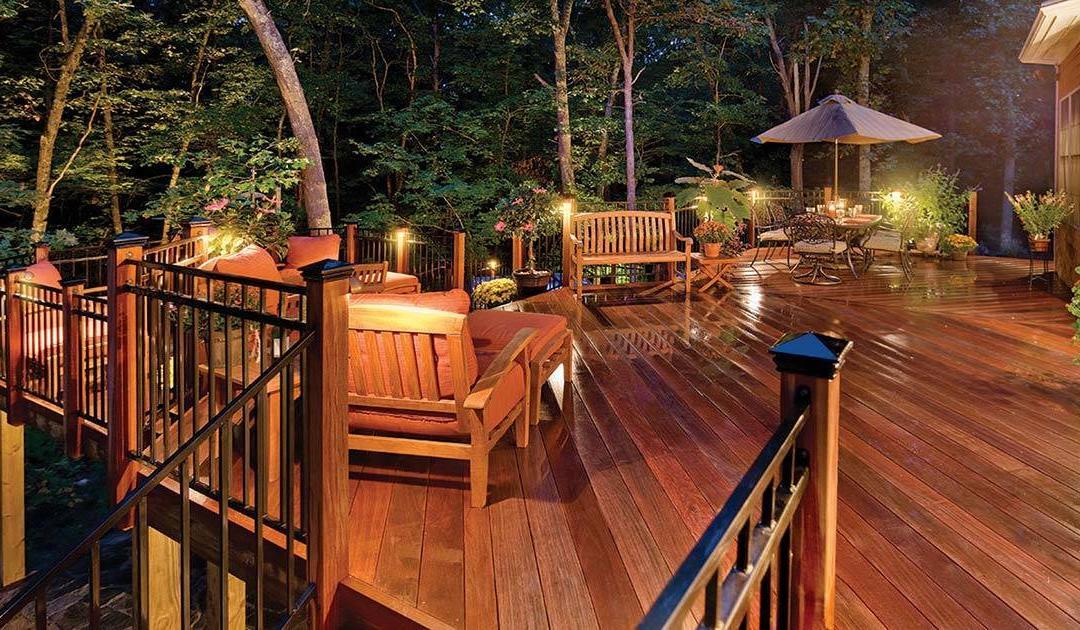
The Importance of Deck Lighting Repair for Safety and Aesthetics
-
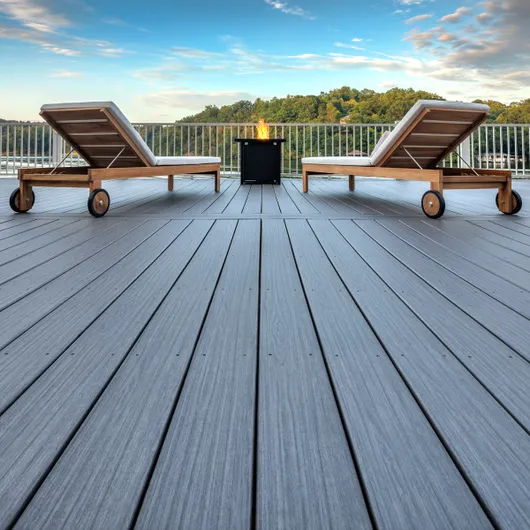
What to Do After Your Trex Deck Installation: Final Inspections and Cleaning
-
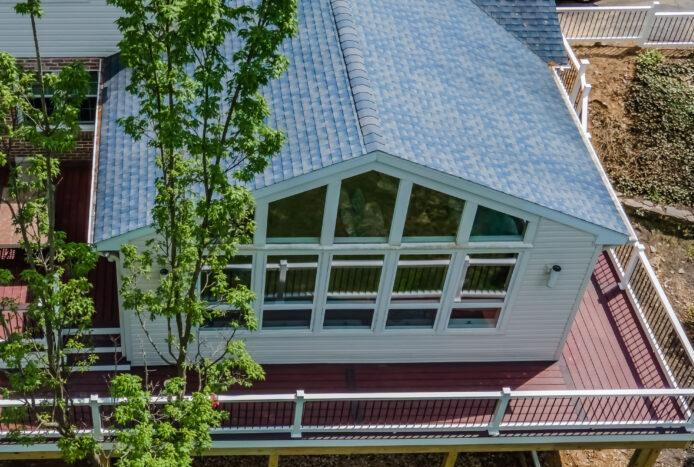
Top 5 Porch Design Ideas for Every Home Style
-
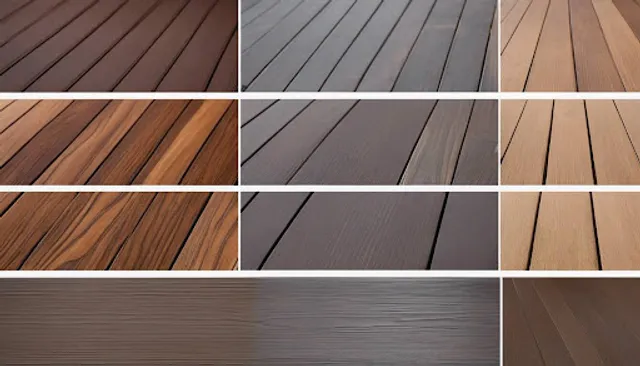
Is Composite Decking Worth the Investment? Here’s What You Should Know
-
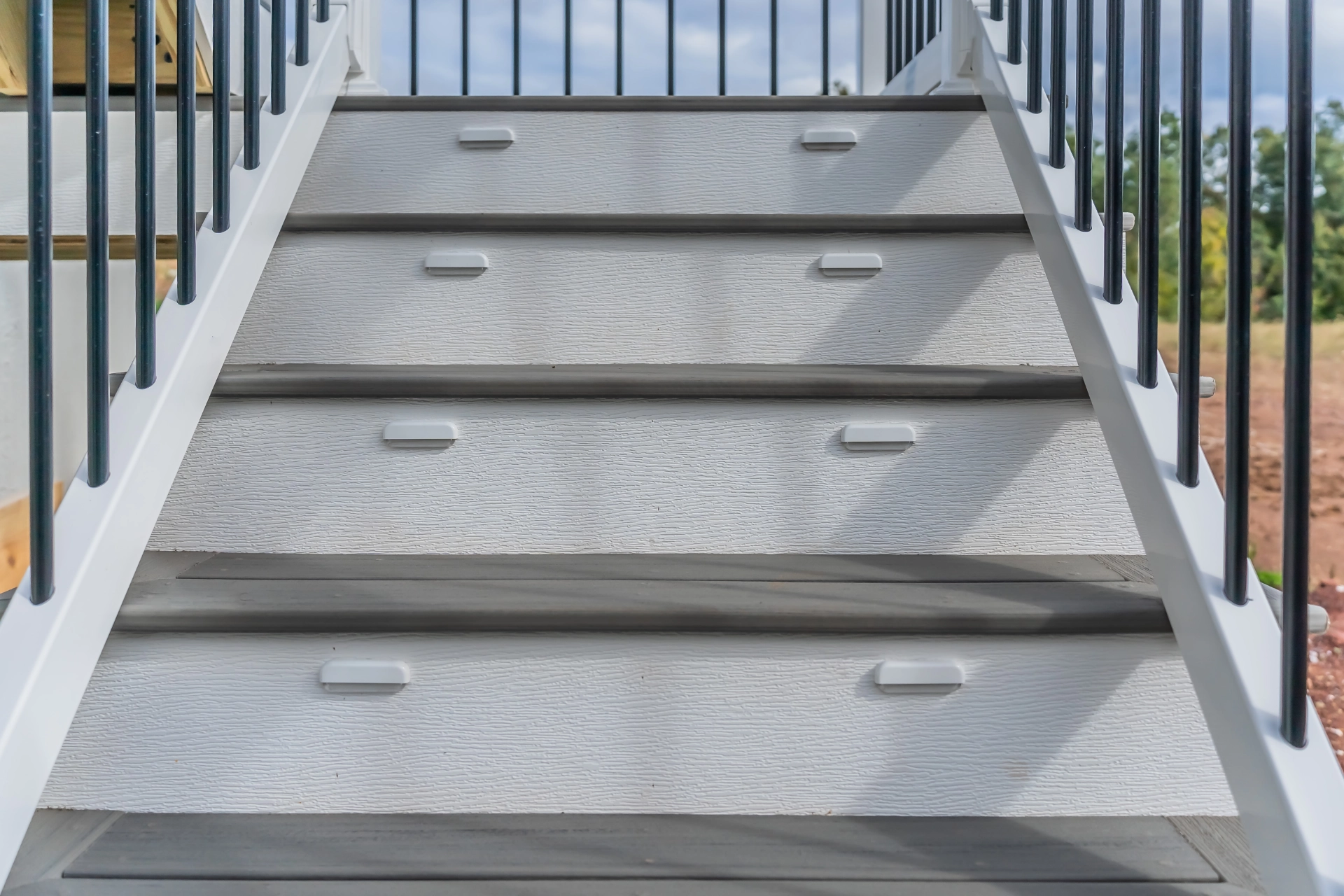
Top 5 Reasons To Schedule Regular Deck Lighting Repair And Maintenance
-
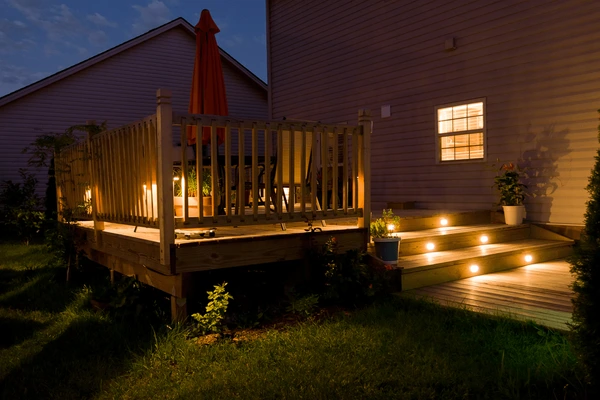
Top Tips for Maintaining and Repairing Your Deck Lighting

